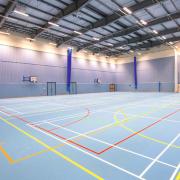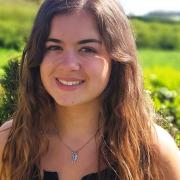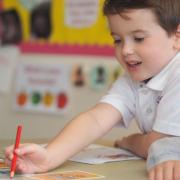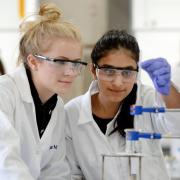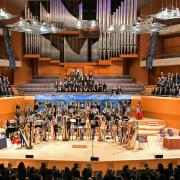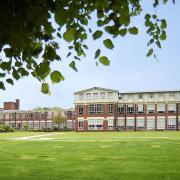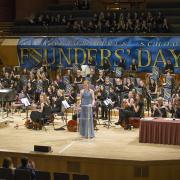Ever wondered what life was like in the Congo? Pupils from Bishops’ Blue Coat High School in Chester experienced it hands on this summer. Words by Rebekka O’Grady
‘When your parents take you away on holiday, it’s different,’ said Vicky Kendal, a 17-year-old sixth form student at Bishops’ Blue Coat High School. ‘On this trip, you weren’t a tourist. It was something totally different for both us and for the people over in Congo.’
Vicky, along with a group of five fellow students from the school in Great Boughton, travelled to the Democratic Republic of Congo over the summer to spend two weeks with the community of Aru on a cultural exchange. Accompanied by two teachers, Catherine Thursby and Helen Smith, the pupils learned about life in the Congo through visits to villages, schools and the local medical centre.
‘Our previous head teacher was from the Congo, so he was keen to set something up,’ explained Catherine, a geography teacher. ‘The Chester Diocese is already linked to the Anglican dioceses of Aru and Boga, but there had never been school age children travelling over there. The first trip last year was a success, so this second visit reinforced the connections already made.’
The group, after landing and spending a day in the Ugandan capital of Kampala to get a feel of metropolitan Africa, travelled by car to the village of Aru where they received a spectacular welcome from people lining the streets and Bishop Ande Titre of the Aru Diocese.
‘They gave us gifts of mangoes and chickens! There were banners welcoming us, and they were singing songs,’ said Helen, head of art. ‘These gifts are such special things to them. When they have so little but they give you things like that, it’s just amazing.’
Despite it being the summer holidays, pupils in Aru were keen to attend classes put on by the Bishops’ students and teachers. The group visited a few schools where they held IT lessons and observed what life was like in a Congo classroom.
‘You would never see so many pupils squashed into one classroom here in England,’ said Vicky, who mentioned that she would like to return to Aru next year when the school hold their third trip. ‘We sometimes see school as a chore, but they voluntarily came out to see and work with us over their summer holiday. Regardless of the language barrier they really tried.’
‘The respect they had with the products and computers was amazing,’ added fellow pupil Danielle Middelton, 18. ‘I lent my camera for them to take photographs, and they were so delicate with it as they didn’t want to break it. All the children were so trustworthy and polite.’
While the pupils held their own lessons, Catherine and Helen observed the teaching styles of the Congo schools. ‘The way they do things is very, very different. They teach lessons without the recourses we have come to rely upon in our classrooms. It made us think that we may not always have to,’ said Helen. ‘So at the same time as us passing on our teaching methods, we took note of some of the things that they do.’
After the teaching day was done, the group spent time socialising with the community, spending their evenings playing football and learning the ukulele. Catherine said that although the Congo is classed as a war zone, you would never have known it: ‘Their number one concern for visitors is that they feel safe, happy and well treated. It was a great atmosphere.’
The trip has changed the perspective of many of the pupils, with one, Hannah Bunford, saying that it made her re-evaluate what she needed in life.
‘But are we lucky?’ questioned Helen. ‘We take relationships for granted as we are so absorbed in other things. They don’t have that, so they really value it and as a result I think they have a better way of life and are better people for it.’








